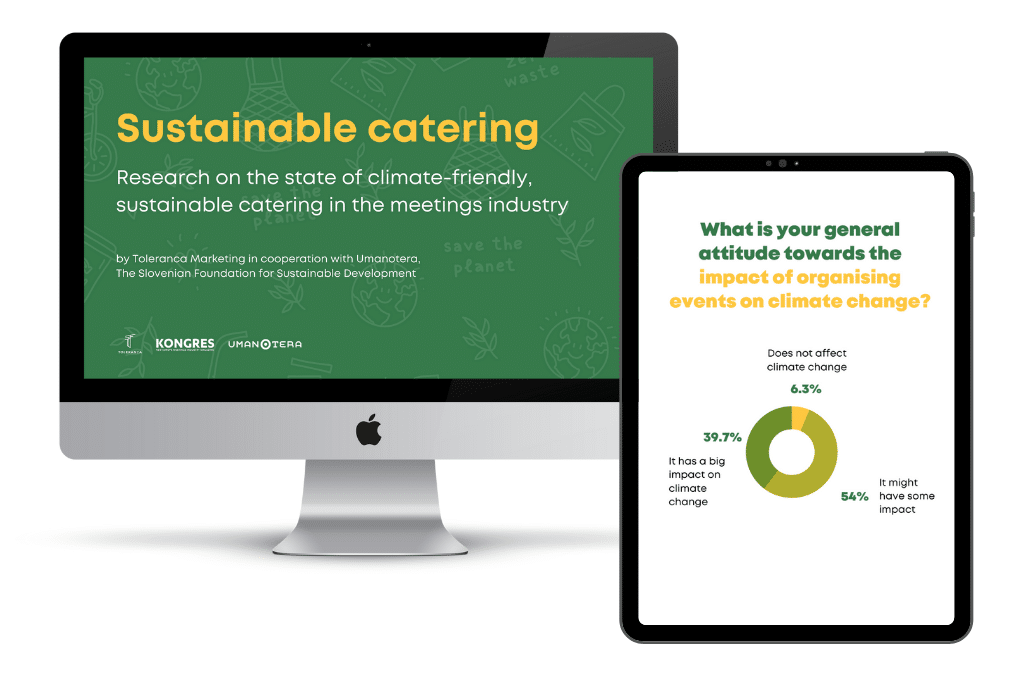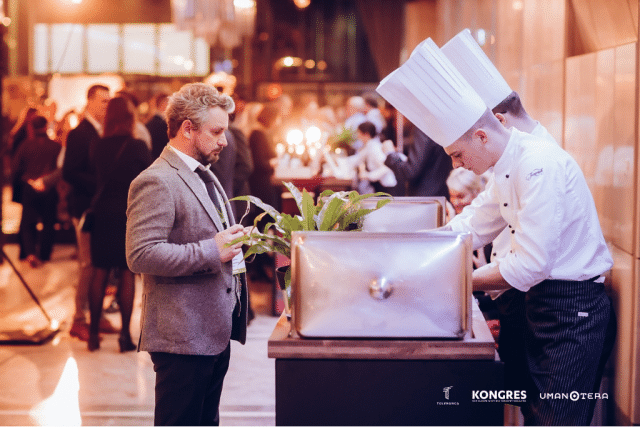Catering is an important part of events, and it is often the thing that makes them memorable. What we eat and throw away at events has an immense impact on the environment, our health and well-being, and our general quality of life. In recent years, interest in climate-friendly, sustainable catering has increased.
In cooperation with Umanotera, The Slovenian Foundation for Sustainable Development, Toleranca Marketing analysed the current state of our industry in this field.
Data was collected through a questionnaire consisting of 20 questions that was sent via email and shared across social media. The sampling frame was Kongres Magazine’s database of meeting planners and social networks. Representing the target population in the research is a sample of 63 meeting planners. The survey ran from 14 February 2022 to 18 March 2022.

Key research findings
The general consensus is that climate change will affect how we organise events tremendously. At the same time, respondents admit that their events also have a tremendous negative impact on the environment.
Setting greenhouse gas emissions reduction targets is on the agenda of most respondents
With the establishment of the Net Zero Coalition, European countries have set targets to progressively reduce their greenhouse gas emissions to as close to zero as possible by 2050. Most respondents plan on setting GHG reduction targets or are in the process of setting them, but only 13% have done so already.
From farm to plate
The most common association with sustainable catering is a local supply chain. This is in line with the “farm-to-table” concept which advocates that the ingredients catering providers use come from local farms and gardens, traveling short distances before arriving on the plates of event attendees.

Is sustainable catering more expensive?
The research found that the main difficulty in implementing more sustainable catering among event organisers is higher costs. At Umanotera, The Slovenian Foundation for Sustainable Development, they are proving that this is not always the case. Event organisers can reach the same cost-effectiveness by smartly choosing local providers, adapting portion sizes, and reducing wasted food.
The last question in the research is indicative of the current state of sustainable catering. When asked; “Have you made any attempt to measure the carbon footprint of catering at your events?” nearly 70% of respondents answered negatively.














